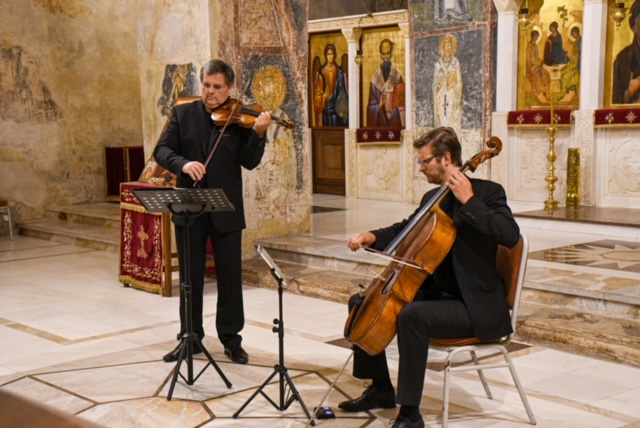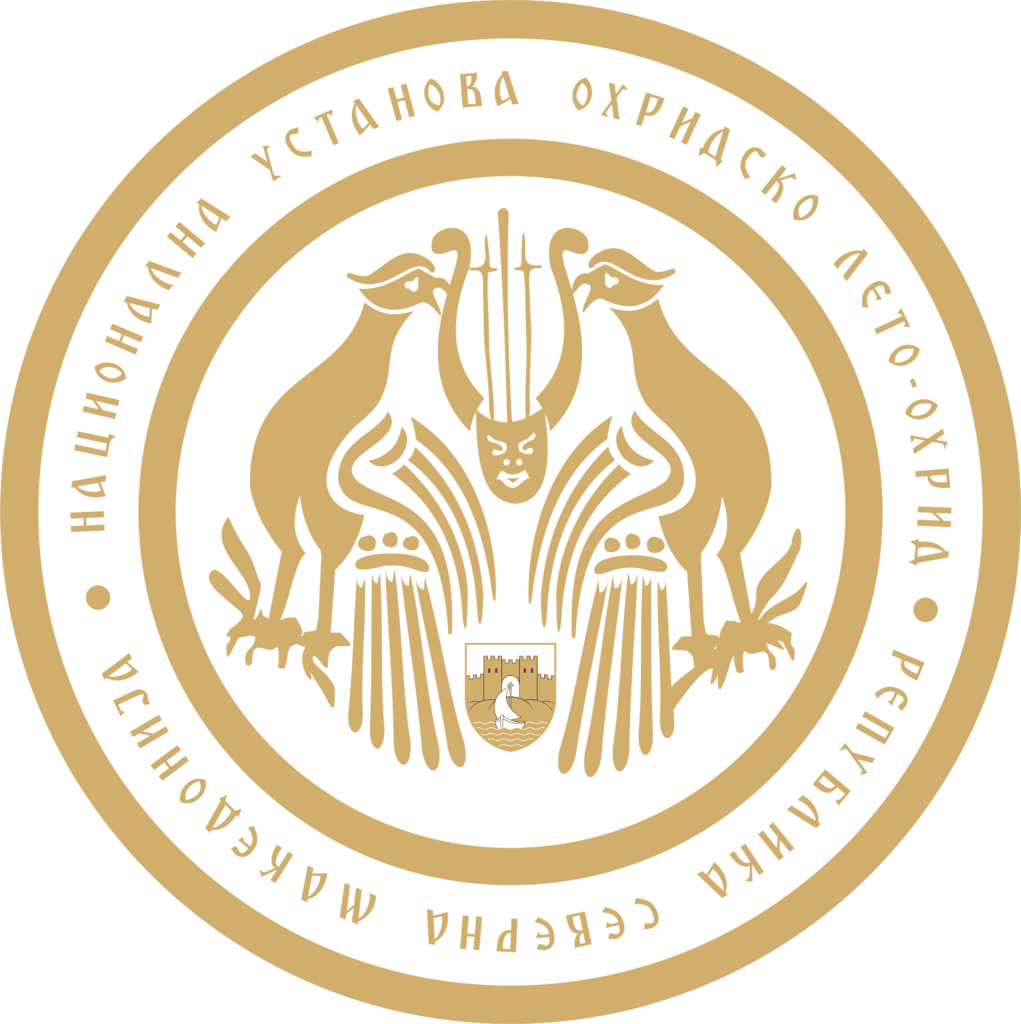
At the traditional ”EU Evening” traditionally supported, for 16 years already, by the EU Delegation in the Republic of North Macedonia, presented “Duo di Prague” from the Czech Republic. It is about a duo – violin and cello, consisted of the violinist Leoš Čepický and the cellist Ivan Vokáč. Tonight Vokáč performed as a replacement to the previously announced Michal Kanka, who was unable to perform. Čepický is already known to the Festival audience for he has performed twice: in 1994 with the “Wihan” Quartet and last year.
By tradition, the EU Evening was opened by the EU Ambassador in the country, Richard Geer, who sent a message in the spirit of support of intercultural collaboration and exchange, and the audience was also addressed by the Ambassador of the Czech Republic, Jaroslav Ludva.
The announced concert programme of “Duo di Prague” got some changes in its order of pieces, which, from this perspective, showed to be a good choice, reaching an effective gradation in the programme concept. The concert began with the “French Suite BMW 814” – the third from the six French suites for piano by Johan Sebastian Bach, which the Czech artists performed in transcription for violin and cello. They showed high professionalism, applying the stylistic and technical details for Baroque dances performances. From the imitation dialogue they led with the instruments, intermitted in times with the ruffled dissonances and harmonious surprises in the Allemande, through the vivacity in the Courante, the extravagance in the Sarabande, the rhythm in the Minuet and especially, the contrast in the Trio, Čepický and Vokac, precisely following the music score, successfully completed the Suite with the English Dance and the especially brilliant Gigue, underlining its imitational character.
Transitioning from the Baroque to Classicism, the performers continued the programme with “Duo for violin and cello KV423” by Wolfgang Amadeus Mozart. By performing this piece, Čepický and Vokac only confirmed the impression from the performance of the Baroque suite, this time, with a precise interpretation of the peculiarities of Classicism, especially the recognizable Mozart style.
As a programme refreshment and a differentiation of a kind of the two parts of the concert, there was the “Tango” by Astor Piazzola, which the duo Čepický and Vokac performed very inspiratively and spiritually.
A pleasant surprise was the “Duo for violin and cello op39” by the not-so-known in our surrounding, Russian composer Reinhold Gliere. Structured in seven parts, the artists from “Duo di Prague” made a music transition through seven, thematically and by character, different contents. Speaking through their instruments, a special impression left the Prelude, where they exchanged chromatic figures with repetitive motifs; in the Lullaby, where both instruments, with suppressed sound, created a gentle and pleasant atmosphere – the cello, with the semiquaver movements followed the romantic and a bit lazy melody of the violin; and in the Scherzo, where strict accents are especially notable.
The concert evening was finished triumphantly, leaving the Czech composer Boguslav Martinu for the end, with his “Dou for violin and cello No.1”. With unhidden enthusiasm and energy, both artists, showing their deep knowledge of Martinu’s work, very suggestively played his Prelude and Rondo, where the influence by Igor Stravinsky was very obvious. The most impressive moment, which literally captivated the audience, was the performance of the cello-cadence, where, in almost three minutes, Vokac presented outstanding virtuosity, expressively performing the complex chromatic ranges, arpeggios, accords and intervals. After hi solo, changing the focus towards the violin cadenza, phonically accompanied by the cello, Čepický confirmed his performing capacities, after which both artists powerfully built the excitement at the very finale.
To sum up, it could be noticed that in the “Duo di Prague” performance we witnessed an especially developed sense for shaping the music phrases, intonative stability, technical preparedness, and what characterized their music the most, was the mutual dialogue, each of them putting their own individual virtuosity in function of mutual realization.Aleksandar Trajkovski

